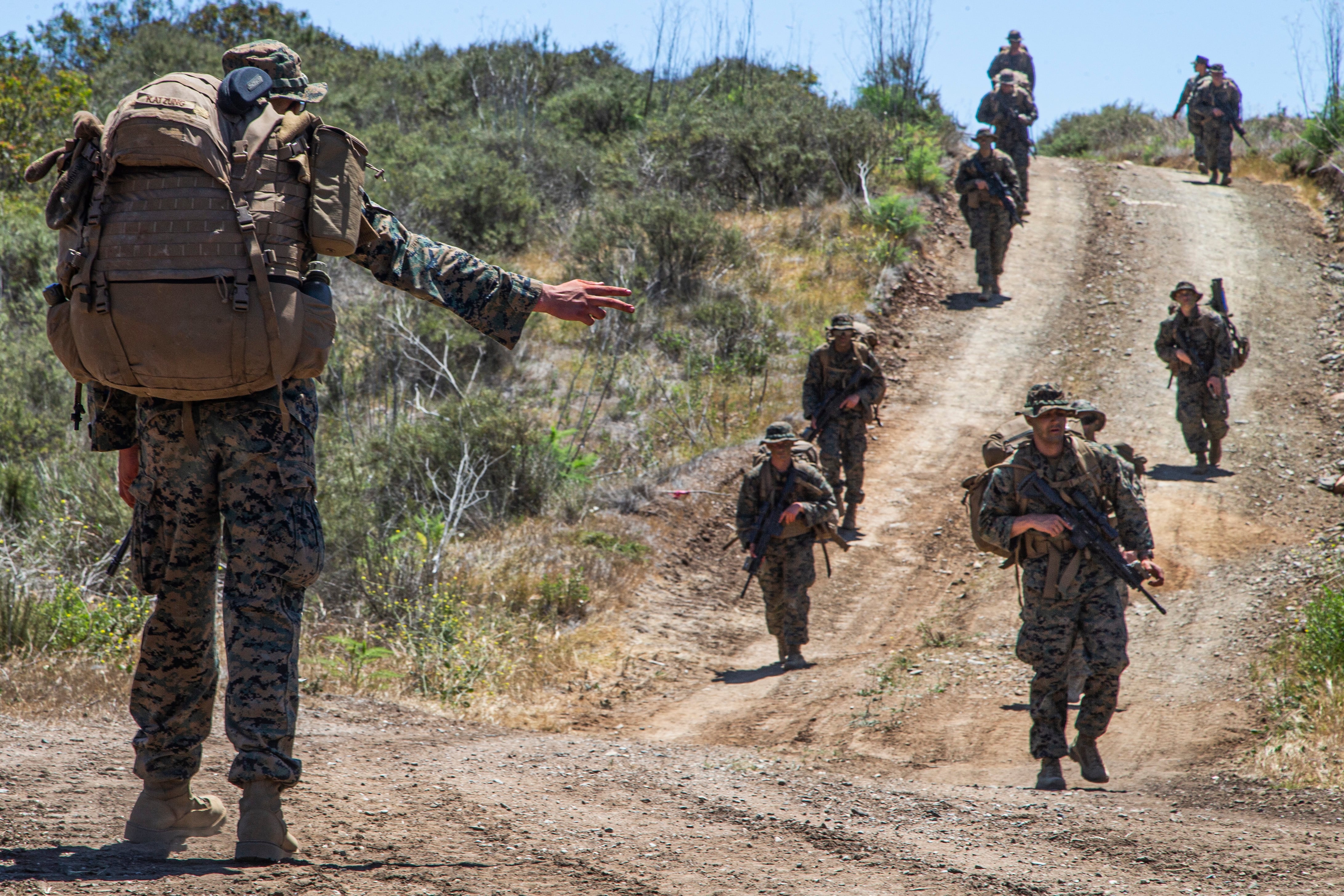After five years the Marine Corps is shutting down its Special Purpose Marine Air-Ground Task Force–Southern Command as the Corps looks to save money to reshape itself.
The SPMAGTF-Southern Command originally was stood up in 2014 and has spent most of its time headquartered on Soto Cano air base in Honduras.
From its Honduran headquarters small groups of Marines would deploy South American nations to aid in disaster relief, train alongside allies and prepare local troops to take on drug cartels.
The recently released Marine Corps budget request for fiscal year 2022 called for an end to the rotational deployment to save over $3 million a year, according to the budget documents.
RELATED

“The realignment of resources and removal of a dedicated rotational force (SPMAGTF-SC) from USSOUTHCOM was based on national and service competing priorities,” Maj. J.A. Hernandez, a Marine Corps spokesman, told Marine Corps Times.
The Corps is cutting costs from all over its budget in an attempt to rebuild the Corps for a fight with China.
In 2021 the Corps scrapped its tank units and started reducing the number of infantry battalions it has in the ranks.
The 2022 budget proposal also calls for the Corps to continue shrinking as it looks to save money.
Though the Corps has ended the Southern Command rotational deployment, there is no sign that the Corps will end the special purpose Marine Air-Ground Task Force deployments to Central Command or Africa Command.
The cut to the rotational deployment coincides with the Marine Corps’ move to make Marine Corps Forces South a three-star position led by Lt. Gen. David Bellon, who also commands Marine Corps Forces Reserve.
“U.S. Marine Corps Forces, South will continue to support exercises and training events with our partners in accordance with our mutual objectives and security cooperation plans,” Hernandez said.
Bellon said the unique role he has as the leader of two separate commands will create an opportunity to more efficiently deploy Marines to Latin America while increasing the capability of the Marine reserves.
“This is a tremendous opportunity for both the service and for (Southern Command) to increase readiness, while we are competing at a much higher level in the hemisphere,” Bellon told Marine Corps Times in May.





